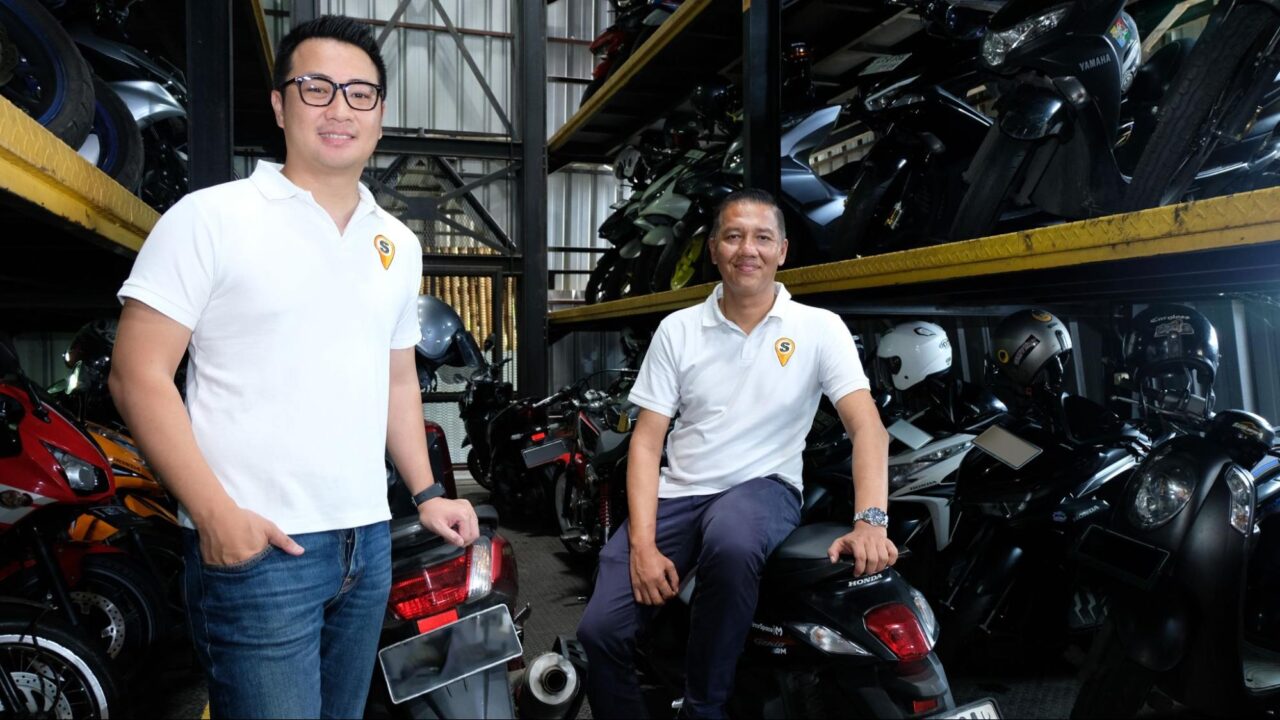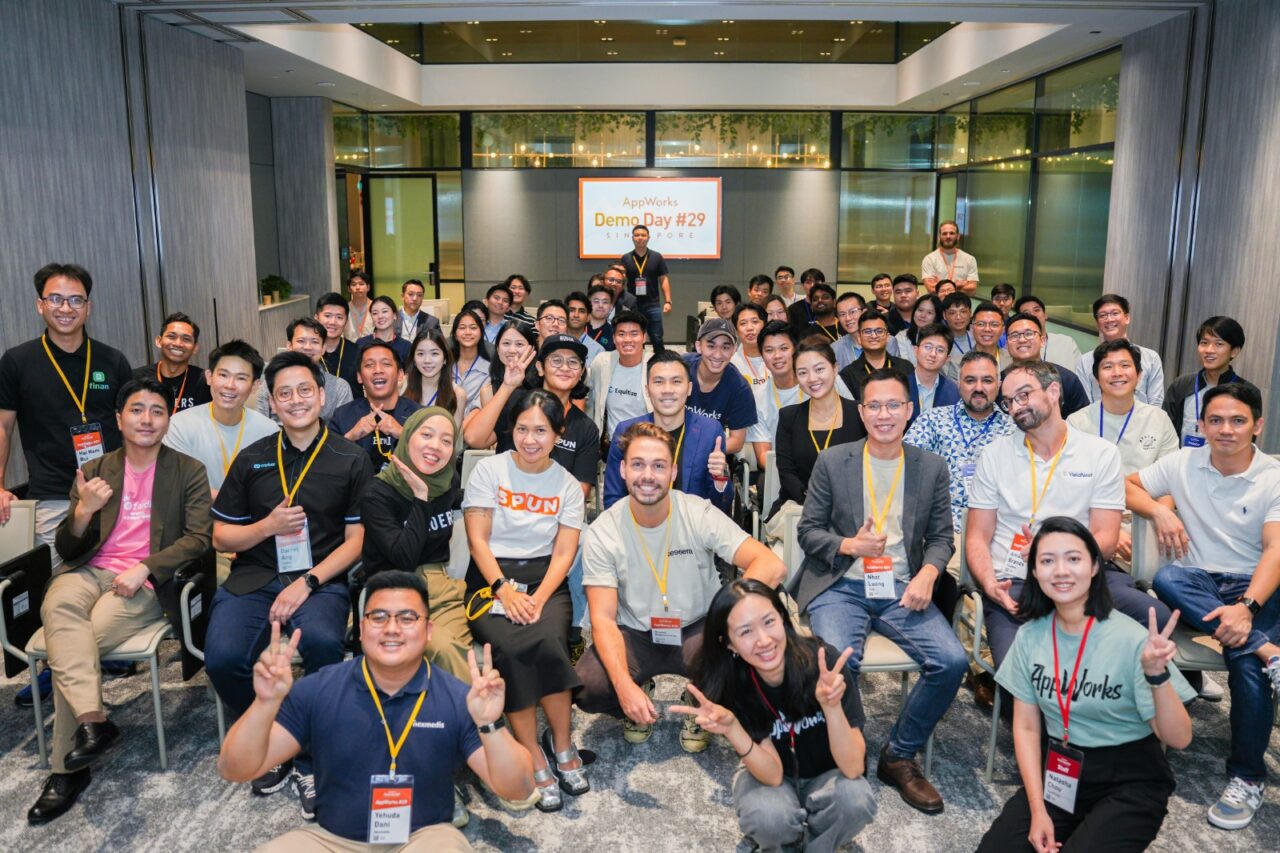
TAIPEI, TAIWAN—December 10, 2024—AppWorks Accelerator, Greater Southeast Asia’s largest startup bootcamp, today held its flagship Demo Day event in Taipei for AppWorks Accelerator #29 (AW#29), while also bringing together startups from Wistron Batch #7 and TINC Batch #9 to participate. The joint Demo Day highlights the continued regionalization of AppWorks, acting as a capstone to the firm’s partnership with Indonesian telecommunications group Telkomsel’s TINC accelerator program and longstanding partnership with Wistron, demonstrating AppWorks capability to foster the development of cross-border startup ecosystems and facilitate corporate-startup partnerships in innovation.
The event featured 34 startup teams from Indonesia, Philippines, Vietnam, Singapore, Taiwan, Japan, and beyond, creating innovative products and solutions from a wide range of sectors, including: web3 & blockchain, AI & IoT, education, and healthcare. Of particular note, 46% of startups utilize AI & IoT solutions, followed by 25% of teams building for web3. Meanwhile, 22% of the participating startups have achieved US$1 million in annual revenue, demonstrating strong product-market-fit (PMF) and business fundamentals.

AW#29 recruited 49 startup teams hailing from 12 countries. A total 103 founders participated in the batch, of which 40% were serial entrepreneurs. 70% of teams came from Southeast Asia. With the addition of AW#29, there are now a total of 607 active startups and 1,846 founders in the AppWorks Ecosystem. These companies collectively generate US$16 billion in revenue, employ over 24,000 individuals, and have raised US$6.4 billion in funding with an aggregate valuation reaching US$30.3 billion.

Web3 Takes Center Stage As Bitcoin Hits New Peak
With Bitcoin exceeding US$100k in December at a new all-time high, AW#29 featured several innovative web3 projects having built themselves during the previous bear market.
“As we enter the new calendar year, investors continue to pour into web3, driven by major shifts in attitudes and allocation strategies—namely greater institutional adoption of web3 investment tools outside of ETFs and the tokenization of real assets as an emerging strategy for traditional financial giants,” said Jamie Lin, Chairman & Partner, AppWorks. “In the future, we will see more financial giants investing physical assets into the tokenized market to increase liquidity as web3 and traditional financial fields cross-pollinate, bringing more innovation to the financial sector.”
In response to the needs of traditional financial institutions, many web3 projects are developing customized crypto investment tools to reduce volatility and improve the consistency of trading returns, including several startups that are part of AW#29, including:
- Led by a co-founder of Hummingbot, the QuantAlpha AI team has caught the attention of Singapore’s renowned asset management firm, Raffles Family Office. In Q4 2024, they deployed $500K to test QuantAlpha’s AI-driven trading strategy platform, with plans to market AI strategies to Raffles’ institutional clients in the future;
- Singapore-based Equitize targets small to mid-sized financial institutions, offering tokenization infrastructure for assets managed in the $25 million to $500 million range. Revenue over the past three months has accumulated to $150,000, with a month-over-month growth rate of 120%. Each institution is projected to contribute approximately $84,000 in annual revenue;
AI & IoT Drives Industrial Upgrading in Southeast Asia
AI & IoT are demonstrating potential in supply chain management, automation, and smart manufacturing, leading to greater industrial efficiency and progress towards sustainable development goals. Among AW#29, several companies showcase the applicability of AI & IoT to create positive economic value and environmental impact.
- Ecofirst is a water-cooling system that uses AI technology to save up to 35% of energy for ice-water host systems in the semiconductor or electronics industries and commercial buildings, attracting major clients such as Micron and Taipower to help them reduce energy consumption and save money;
- uHoo develops air conditioning equipment for commercial buildings and homes, providing air purification and an environmental data platform to help create more environmentally-friendly office spaces and buildings. uHoo’s air conditioning equipment has been adopted by commercial buildings, hospitals, elderly care facilities, and government departments across Singapore, Australia, Switzerland, the United Kingdom, and the United States;
AI Transforming Education for the Modern Era and Better Student Outcomes
With rapid changes in society and the future of employment being transformed by the digital economy, traditional education systems have struggled to keep up in preparing students for an ever-changing world. For the education sector to keep up and better serve students for the future, schools are adopting technology to increase student participation, reduce operating costs, and improve student outcomes. A number of startups featured demonstrated strong potential in transforming education.
- Malaysia-based Aone is a SaaS company focusing on education business management and cash flow payment systems. The company has expanded to nine countries across Southeast Asia and serves over 2,000 educational institutions, helping to solve the operational pain points of schools to help collect tuition and manage student enrollment;
- SpeakBUDDY from Japan utilizes an AI language learning application to help users improve their English speaking skills by conversing with AI characters, helping students learn English they can use in daily life, business, and travel scenarios. The company has over four million registered users, and has corporate clients such as Bridgestone, Mizuho, and Mitsui Fudosan;
Bringing TINC to Taiwan and Facilitating Innovation with Wistron
AW#29 Demo Day was joined by startups hailing from two of AppWorks’ co-operated accelerator programs, including Telkomsel’s TINC Batch #9 from Indonesia, and Wistron Accelerator Batch #7.

Two startups from TINC Batch #9 made the trek to Taipei to participate in the Demo Day, demonstrating strong interest in exploring opportunities in Taiwan, and strengthening connectivity between Southeast Asia and Taiwan, namely:
- Finfra is committed to providing seamlessly integrated financial services to enterprises, aiming to build financial infrastructure and promote the development of enterprise digitalization and modernization;
- Primaku is a digital parenting platform focused on helping parents, simplifying medical records, and managing vaccinations, allowing parents to more easily manage their babies’ growth and health;

Wistron Accelerator #7, jointly operated by Taiwan’s Wistron Group and AppWorks, featured three startup teams building AI-driven solutions, including:
- South Korea-based IPIN LABS provides AI-driven indoor positioning solutions, utilizing AI to improve the accuracy of positioning and detection of people and objects in indoor spaces;
- RemoteNC, developers of AI for engineering drawing analysis, uses AI recognition models to quickly identify product parts and diagrams, and provides quotations for similar products, allowing companies to quickly complete purchases;
- AEplus Smart Factory is creating cloud solutions and AI software for Taiwan’s manufacturing industry to simplify work processes and improve production efficiency;
AW#29 Founders and Their Associated Companies Featured Included:
Web3
- (MY) Carlo Las Marias, QuantAlpha AI: AI-powered crypto trading strategy platform
- (TH) Amadeo Brands, YieldNest: Liquid restaking with simple, risk-adjusted strategies
- (ID) Daniel Suwahjo, Xellar: Developer tools for onboarding web3 users
- (SG) Darien Poh, Equitize: Liquidity aggregator for tokenized securities
- (EU) Nicolas Deppenweiler, Tessera: Web3 ticketing with optimized resale insights & conversions for event organizers
- (TW) Ting-hsu Wan, Blave: Providing cross-exchange crypto-trading alpha by aggregating data from top-rated traders
- (PH) Jiro Reyes, Bitskwela: Assisting Web3 projects with user education and market promotion in Asia
- (SG) Ben Kang, Moby: On-chain crypto options exchange with 24/7 liquidity and top-tier pricing
- (VN) Frank Dang, Harmonix Finance: On-chain hedge fund platform
Healthtech
- (VN) Nhat Luong, DiaB: Phygital Integrated prevention & management platform for combating chronic diseases;
ESG
Edutech
B2B SaaS Tools
- (VN) Han The Truong, Peacom: Automating commerce on every messaging platform;
- (US) Yan Grinshtein, Nsight: Unified data intelligence & decision automation for product and design teams;
- (MY) TK Chuah, Boostorder: Multi-sales channel order & pay automation for brands & distributors;
- (VN) Pawel Gorski, Tribee: AI platform helping frontline teams to sell more with data-driven insights;
Entertainment, Hospitality, and Travel
Industrial
Consumer
- (TW) Ken Ho, Tracle: Trash pickup service;
- (TW) Bill Hsu, Simmpo: World’s No.1 anti-blue light screen protection technology;
- (TW) CJ Su, Raingo: Taiwan’s leading AIoT shared umbrella provider for smarter urban living;
- (ID) Ryan Wei, SIP Group: Functional nutritious snacks for grassroots Indonesian kids;
Wistron Accelerator Batch #7 Founders and Their Associated Companies Featured Included:
TINC Batch #9 Founders and Their Associated Companies Featured Included:
- (ID) Markus, Finfra: Building the financial infrastructure of Southeast Asia by enabling seamless integration of financial services for companies;
- (ID) Didit, Primaku: Simplifying record-keeping and milestone tracking for new parents with a dedicated newborn baby health platform;
About AppWorks
Founded in 2009, AppWorks is a leading startup community and venture capital firm built by founders, for founders. We are committed to backing the next generation of entrepreneurs in Greater Southeast Asia (ASEAN+Taiwan) and helping them facilitate the region’s transition into the digital age. Just as how mobile and the internet completely transformed the status quo, we believe the current era of technology is currently being defined by major three paradigm shifts: AI, Blockchain, and Southeast Asia (ABS).
As such, whether it’s mentorship, investment, or talent, AppWorks has established a one-stop-shop for ambitious founders willing to bet against the consensus and drive a change they want to see in the world. We help startups build disruptive businesses from even an inkling of an idea into world-class enterprises through our three primary lines of service: Accelerator, Funds, and School.







